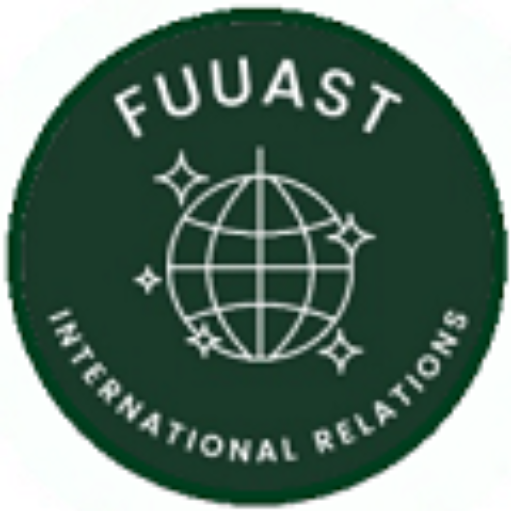Written By :Maryam Anwar
The recent massive floods in Pakistan have highlighted Pakistan’s relations with the United States and the People’s Republic Of China. As the US Secretary of State Antony Blinken recommended that Pakistani foreign minister Bilawal Bhutto Zardari appeal to China to do more regarding the facilitation of Pakistan’s debt relief and reconstruction in the wake of the flood, in Washington. Albeit, Pakistan’s youngest foreign minister tactfully answered back to the US secretary of state that it’s a matter between Beijing and Islamabad.
Given the retrospect, of Pakistan’s foreign relations with the United States and China, it is oblivious, that it would be back-breaking for Pakistan to settle between the United States and China, if the situation exacerbates between the US and China. The ongoing rivalry between the US and China has been apprehensive since the People’s Republic emerged as a new economic power and set off to enrich its military power on the intercontinental stage. No matter what country Pakistan decides to take sides with, the consequences would be stringent for Pakistan.
Ostensibly, the US and Pakistan relations are abstruse, as Pakistan has dreamed of a close military alliance with the US after its detachment from India. Harboring glimpses at the past, amidst the cold war, the United States used the Badaber air base of Peshawar, Pakistan, in exchange for military and economic assistance to Pakistan. However, when Pakistan went to war against India, the United States not only dispelled itself from Pakistan but even withhold the military assistance to Pakistan. Even though, the United States cut off the armed supplies to India vis a vis, albeit it affected more economically weak Pakistan. Later, when Pakistan strived to resume military support from the United States, the United States endeavored to cajoled Pakistan to purchase weapons from France and China, the then Pakistani secretary general for foreign affairs, Aziz Ahmed, concurrently conveyed the US that Pakistan had very limited resources to buy French extortionate weapons and the Chinese weapons were less sophisticated. In the light of aforesaid occasions with references of Pakistan and the US relations, the US kept Pakistan in it’s coalition only when it required Pakistan’s support during the contamination of communism in south Asia and in the middle East. The US, precisely, turned blind eyes on Pakistan nuclear processing program, when the cold war fetched up and the new phraseology in International affairs arose, which was instigated by US president George W. Bush, “war on terrorism”. The dynamics of Pakistan’s foreign policy fluctuated as well and Pakistan proceeded with its opposition to its own corroborated, Taliban on Afghanistan’s soil. Henceforth, Pakistan assisted the United States in the global war against terrorism vis a vise Afghan’s Taliban. Before that, during the Sino-Indo war, the US materialized India, albeit, justified itself as it was for the containment of communism, whilst there was no epistolary accord between the US and India. In the case of the India and Pakistan wars of 1965 and 1971, the US did not dispatch its military as it did in the Sino-Indo war. Although, Pakistan was the US strategic partner yet the US has left Pakistan disheartened.
In the meantime, Pakistan and China relations have long chronological, cordial, and bilateral associations, so far. The two countries are availing the advantages of their close relationships following the independence of People’s Republic of China in the 1950. Pakistan has provided support to China to get the permanent seat of United Nations Security Council. Pakistan has also played the role of mediator between China and the US amidst of the cold war to deracinate China from the Soviet Union milieu. Pakistan was the first democratic and Islamic country that instituted aerial correspondence with the communist China. At present, Pakistan and China are parts of projects like China Pakistan Economic Corridor (CPEC) which is idiosyncratic for both countries. The CPEC project would have multifarious impacts on Pakistan and China relations as it would further aggrandize the economic reliance of the two countries on each other.
It is clear that Pakistan can not provide its assistance only to the US as it did in the case of the Taliban. Pakistan should learn from the US who never reinforced Pakistan at the expense of its relations with India. Similarly, Pakistan must not go to the US camp at the expense of its strategic partnership with the People’s Republic. Despite that Pakistan could continue to play the role of arbitrator between Washington and Beijing as it did during the cold war period, and just as the foreign minister, Bilawal Bhutto Zardari had said that Pakistan would prefer to play the role of the bridge than being a geopolitical football between the US and China.
Therefore, Pakistan must keep a balance between the enmity of the US and China to avoid any complexity at its northeastern border and with the US on the international platform. Even though, the US did not endorse Pakistan multiple times, particularly against India, which is the utmost enemy of Pakistan. But the contemporary remarks from the US serving president Joe Biden: “Pakistan is one of the most dangerous nations without cohesion”, demonstrates that it would be difficult for Pakistan to subsist the impartiality between China and the US. Perhaps, it is a matter of time that how Pakistan keeps the balance between the two gigantic economical and military powers of the present world.
In summation, Pakistan could not remain only in the Chinese periphery, moreover, in the current scenario, when Pakistan is coiled with the economic crisis besides devastating floods, and political chaos, the US including the United Nations and other countries and international organizations could provide economic assistance to Pakistan.

